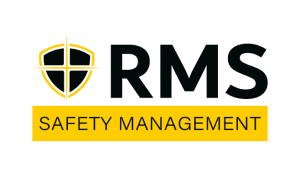On May 12, 2016, OSHA published a Final Rule that was largely touted as their initiative to gather annual injury and illness information electronically starting in 2017. However, tucked away within the Final Rule were some modifications that will also limit each employer’s ability to discipline their employees, issue safety incentives, and administer post-accident drug tests! These changes that were initially framed by OSHA as being ancillary have now become the central focal point to many. In fact, they are under such scrutiny that multiple employer groups have filed legal action. This has resulted in the effective date being delayed twice so far (now December 1, 2016).
In an attempt to clarify their stance on these issues, OSHA has published some “Frequently Asked Questions” and a document titled “Employee Involvement (Employee’s right to report injuries and illnesses free from retaliation)”. In our opinion, both resources are helpful, but the “Employee Involvement” document offers much more detail and some case study examples. Here are a few things that we gathered from this publication:
OVERALL
- OSHA is not banning disciplinary action, incentive programs, or post-accident drug testing. They are simply making sure these programs are not being used in a manner that would discourage injury reporting.
DISCIPLINARY ACTION
- Issuing discipline to an employee who violates company policy and gets injured while others aren’t disciplined when they violate the same policy may be considered discrimination and result in a violation. This makes it even more important to enforce company policies consistently, whether there is an injury involved or not.
- Discipline issued to an injured employee must be tied to the direct violation of a clearly written policy, not for something vague like “Not being aware of their surroundings”. This underscores the importance of having a well-written comprehensive Safety Program.
- Employers may not discipline employees for failing to report an injury on the day it occurred if the symptoms did not occur that day.
INCENTIVE PROGRAMS
- Programs that penalize employees who become injured could be considered as discrimination and result in a violation, especially if substantial prizes and/or peer pressure are involved.
- Programs that reward employees for positive safety performance are encouraged (i.e. good safety inspection scores, reporting near misses, submitting improvement ideas, attending training, meeting participation, high safety quiz scores, etc.) We believe these work better anyway!
POST-ACCIDENT TESTING
- Sending employees for post-accident tests when drugs or alcohol could not have likely contributed to or caused an incident (i.e. bee sting, carpal tunnel syndrome, etc.) could be considered as discrimination and result in a violation.
- Company’s who are required by another government agency (DOT) to issue post-accident drug tests to all affected employees will not be cited.
- Companies will also not be cited if they receive credit from their insurance company for issuing post-accident drug testing.
- For those who are not exempt, this rule creates a need a very clear and well-written Substance Abuse policy. Policies should clearly state how post-accident tests will be administered (i.e. when they will be given, and when they won’t be).
We hope this helps you better understand the direction OSHA is heading with these issues. Click here if you would like to visit their website for more information.

